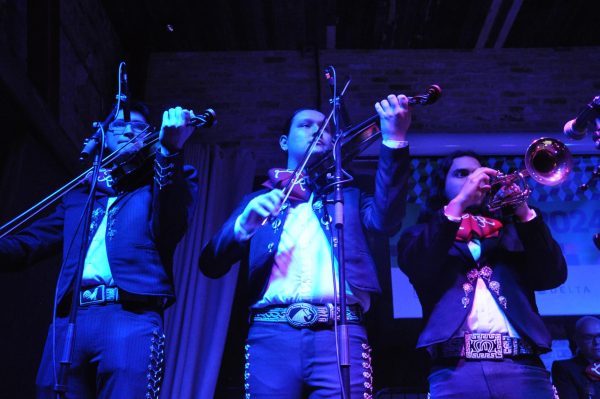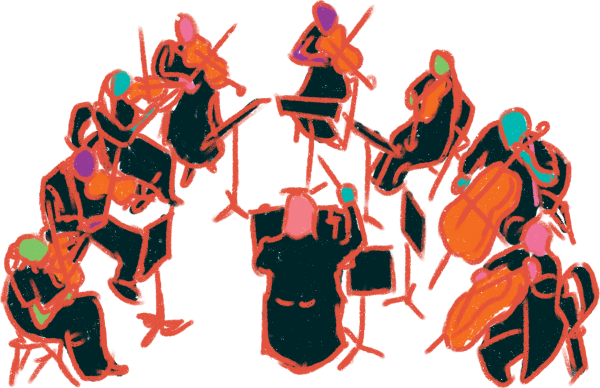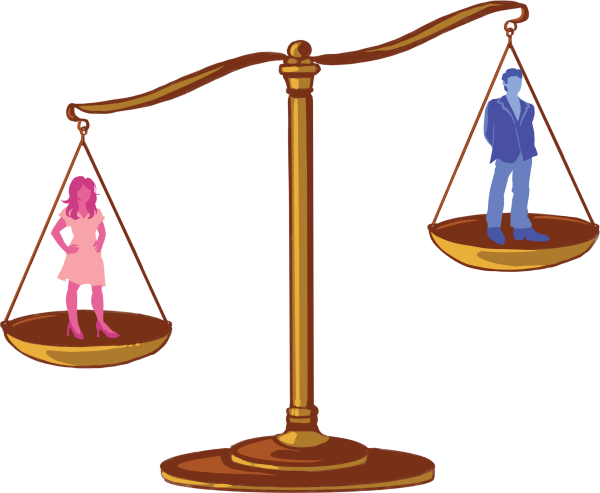There’s Music in the Water: SXSW Artists and Austin’s Gig Crown
May 5, 2022
In the mid-80s, a member of a New York music industry convention suggested that the best way to measure how supportive a city is of its live music scene is by counting the number of different live music venues open on any given Monday night. Austin was highlighted as having over seventy live music venues available to the public on an average Monday night and thus was dubbed the title it is most often associated with today: “The Live Music Capital of the World.”
However, now that SXSW is back in Austin, it may be time to re-evaluate this definition. SXSW in particular is known in the music community for supporting smaller artists rather than major headliners like ACL. One of these artists was Stephen McAll of the Constant Followers, a “soaring-ambient-dreampop-experimental-folk” band from Stirling, Scotland. McAll recalls his musical upbringing fondly, remaining appreciative of Scotland’s strong musical heritage. As McAll explains, where Stirling lacks in venues per capita, it more than makes up for it in value to the community and a generally encouraging atmosphere.
“In a city of just 50,000 people, it’s hardly surprising that there aren’t gigs every night of the week, but there certainly is a culture of love and support for music—between the bands, and between band and audience,” McAll said. “For me, the most amazing places to play aren’t just the big cities that have music every night, it’s also those little towns and villages where it’s a special thing when a band rolls into town.”
McAll’s point about Stirling and smaller cities in general prompts the question of whether small cities with prominent music scenes invalidate the basis on which Austin was deemed to be the “Live Music Capital of the World.” However, another SXSW artist, Melissa Brooks of the rock band Aquadolls, offered a differing perspective to McAll as a resident of a similarly praised big city: Los Angeles.
“I’m lucky that I grew up around Los Angeles and Orange County,” Brooks said. “There are so many artists down here making all styles of music, and it’s really easy to make a lot of friends in the scene.”
Rather than basing her definition of an environment that facilitates a successful live music scene on numbers of venues, Brooks defends Austin’s reputation as the “Live Music Capital of the World” by noting the approachability of other live artists in the same location. Fellow Los Angeles resident Christina Wheeler is a composer, vocalist, multi-instrumental electronic musician, multimedia artist, and returning SXSW featured artist. She considers a third and final factor towards determining this same title through her experience touring in Italy.
“One of my favorite places to play was in Bari, Italy,” Wheeler said. “The people there were so warm and welcoming, and when I casually met some locals pre-concert, and offered the couple that didn’t have tickets guest list, and included their party for the after-show meet-and-greet, they were so happy that when I arrived at the venue in Naples the next day, I found a huge bouquet of thank you flowers in my dressing room. Their generosity and kindness so touched me. I remember it to this day.”
The final factor to consider when assigning this title of “Live Music Capital of the World,” according to Wheeler, is the hospitality and kindness of the residents of the given city. Keeping these factors in mind, these artists can attest to the fact that this live music capital debacle reduces to one thing: music. The general consensus these artists came to was that, given that music is an artform and art is a subjective issue, there’s no true way of proving any one place is the official live music capital of the world.
“If there is a ‘Live Music Capital of the World,’ then I certainly wouldn’t be surprised if it was Austin,” McAll said. “I’d love to come back when there isn’t this influx of international visitors, and really see what the scene is like outside of SXSW. Looking from afar, I see so many fantastic bands emerge from [Austin], there must be something in the water.”





